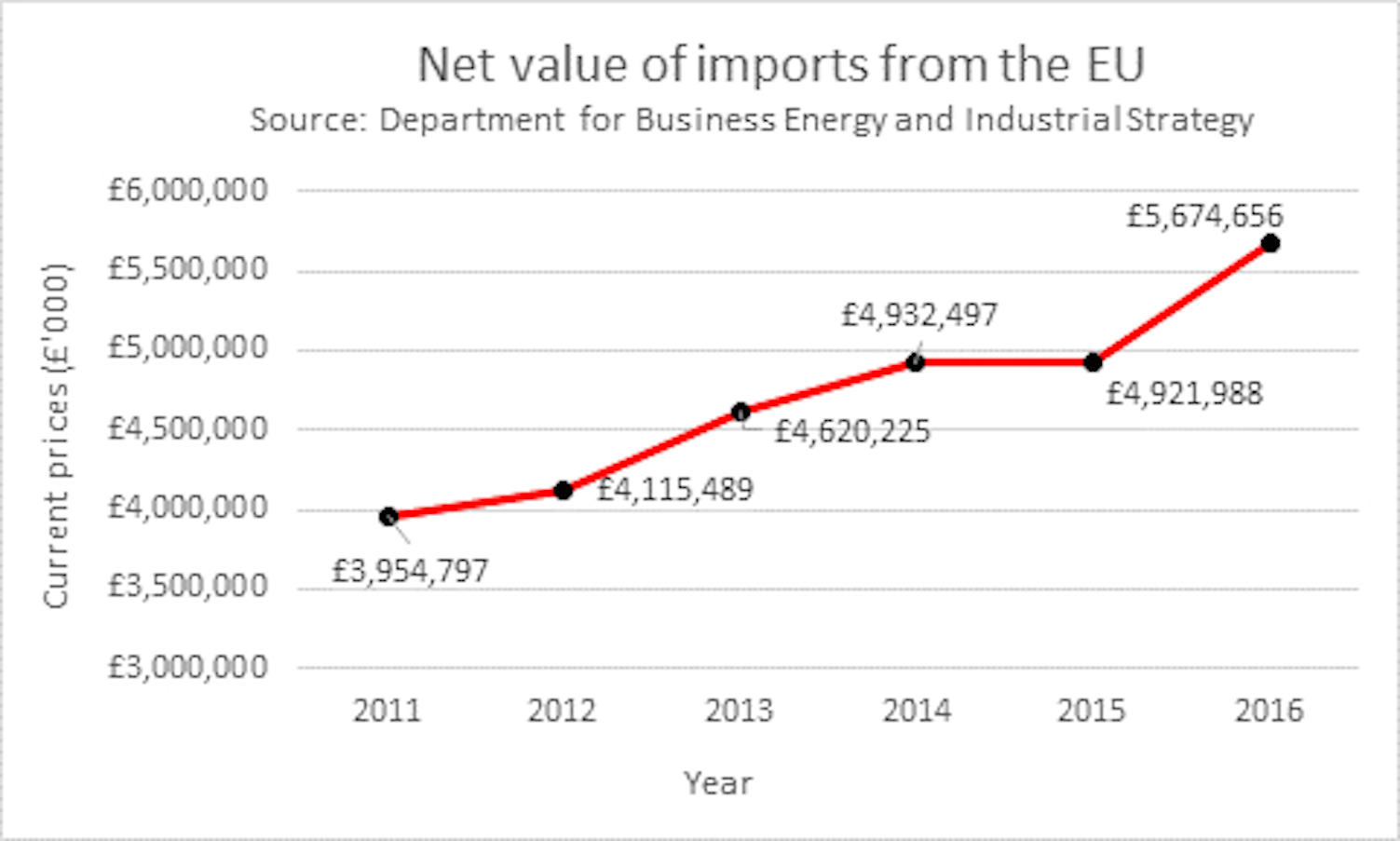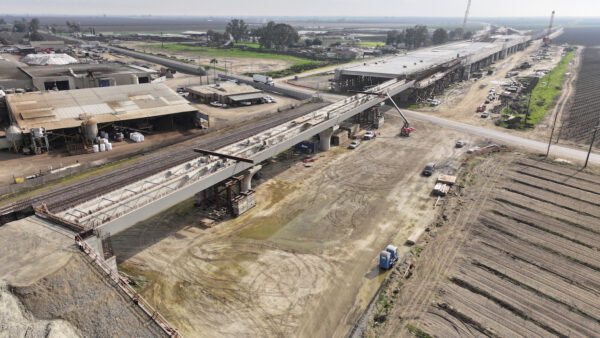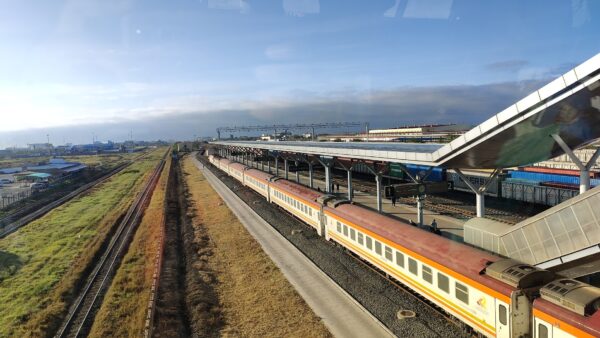Record levels of material imports to Britain from the EU, plus rising costs due to the falling pound and the prospect of tariffs, will combine to create a substantial “Brexit cost” to the UK industry, a new report warns.
That plus the anticipated decline in European construction workers migrating to the UK means the construction sector is facing a “toxic mix” of issues that will hurt its ability to deliver projects, it says.
Latest UK government data shows that 61.6% of imported building components and materials come from the EU, which equates to a net total of £5.7bn, up from £4.9bn in 2015.
The same data show that the construction materials price index increased 5.8% annually in January 2017.
This unprecedented growth has seen net imports from the EU rise to the highest level since 2011 – up by 15.3% annually, says Scape Group, a public sector procurement body.
Separate data show construction companies reporting, in February 2017, the second-fastest rise in input costs since August 2008, Scape said today.

There were reports of higher prices for a range of materials, driven by the weak sterling exchange rate against the dollar and euro.
Scape notes that trade association the Federation of Master Builders has already found that 70% of UK builders have experienced price hikes as a result of the falling pound, with some firms anecdotally reporting 20% price increases on some materials.
Additional increases of 10-15% are anticipated in 2017 – and this doesn’t include any further impact the triggering of Article 50 and the ongoing Brexit negotiations might have, Scape said.
A 10% increase on the current net costs of EU imports amounts to £570m.
Meanwhile, the potential impact of tariffs – if the UK leaves the EU without a trade deal – could be highly significant, Scape said, with research showing EU exporters could also face £12.9bn in tariffs on goods coming to the UK, including machinery and chemicals.
“The construction sector is facing a toxic mix of issues which will inhibit its ability to deliver projects,” said Matt Carrington-Moore, chief marketing officer at Scape Group.
“The prospect of a fall in the number of construction workers from Europe, combined with the soaring cost of imported materials as well as the magnetic effect that large scale projects such as HS2 will have on the local supply chain, pose a serious risk to the quality and timely delivery of buildings and infrastructure. All of the evidence suggests that Brexit could trigger a significant decline in this country’s construction sector, and the impact that this has on UK PLC would be significant.”
Labour force implications
The number of EU migrants working in the construction sector has been on the rise over the last decade. Scape referenced a study that said the proportion of EU migrants in the construction sector rose from 3.65% to 7.03% between 2007 and 2014. If this trend was able to continue unabated over the next seven years, 10.41% of the UK construction sector would comprise workers from the EU by 2021, it said.
The skills crisis in construction is already at breaking point, Scape said. Its own research suggests a lack of workers with the necessary skillsets is negatively affecting the quality of projects according to 85% of public sector managers.
“The Prime Minister has made clear that UK membership of the single market is not on the table and there is a serious question mark hovering over the issue of what our deal will look like and when it will be negotiated,” said Carrington-Moore. “The skills gap will turn into a gaping chasm if the talent flow from the EU is not swiftly addressed. As a result, the construction sector is in a very vulnerable position.”
Top image courtesy of Joseph Gough/Dreamstime
Comments
Comments are closed.











But the point of Brexit and joining the wider world is that we will not have to purchase from Europe. The reason why WTO rules will be advantageous is that we will be able to purchase from the USA / Canada and other (relatively in relation to the EU) low-cost countries without tariff barriers.
Regarding the skills crisis – isn’t it about time that Construction was ‘professionalised’ with proper skills being taught?
Regardless of the “value” of foreign workers, the quality of the work is poor.
All this is predicated on the idea or assumption that the UK will not train or retrain any workers; and that the UK is now incapable of making construction products.
It suggests that we need a whole new set of leaders and senior managers in the industry and its supply chains.
The EU really needs the UK market as much as the UK to a degree needs the EU Most likely outside of the exchange rate changes for the GBP
The most likely cause for material price increases is profit gouging by the suppliers